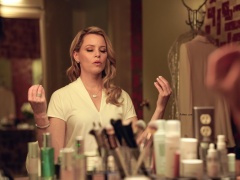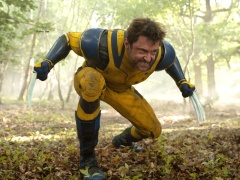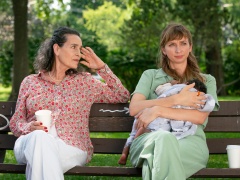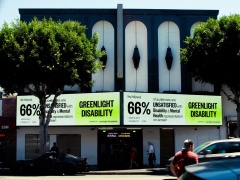
A group of industry actors, filmmakers, writers and showrunners has signed on to an open letter spearheaded by Inevitable Foundation asking Hollywood to consider financing and marketing more projects that include accurate and entertainment representation of people with disabilities. Among the signers are “Coda” director Sian Heder, Alyssa Milano, Ramy Youssef, Rachel Bloom, Marlee Matlin, “Three Body Problem” showrunner Alexander Woo and “A Quiet Place Part II” star Millicent Simmonds.
The letter also calls for collecting more data around content featuring disabled individuals and making sure entertainment venues are accessible to all. Inevitable Foundation invests in disabled writers and filmmakers to enable them to achieve artistic and financial freedom and use film and television to destigmatize disability and mental health globally. 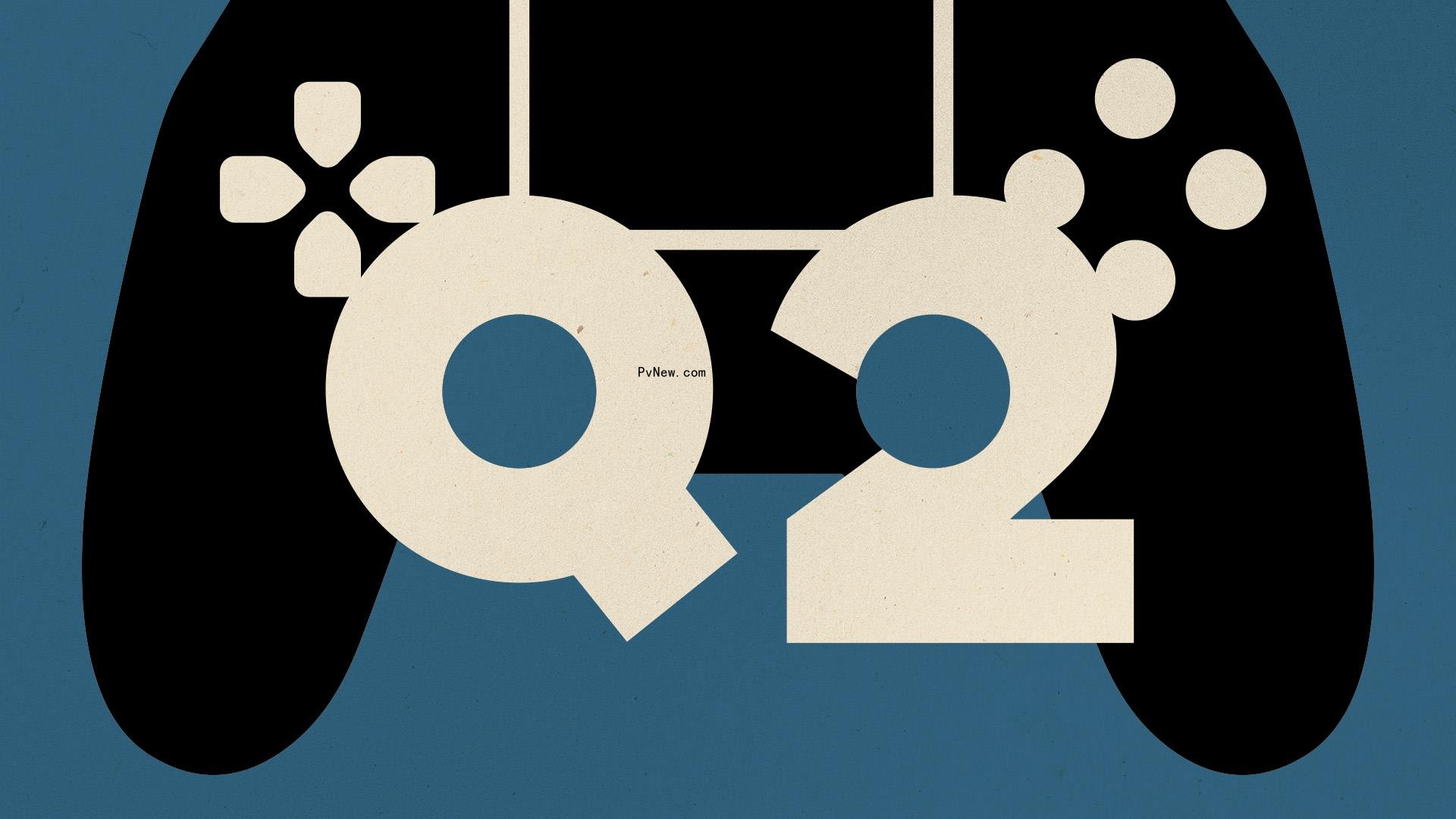
Take-Two Earnings Emblematic of Endless Risk-Taking in Gaming Biz

WWE SummerSlam 2024 Livestream: Here's How to Watch the Pro Wrestling Event Online
Read the letter below:
Hey Hollywood,
There is a massive, loyal, and engaged audience of viewers and consumers within the global entertainment landscape who remain entirely underserved.
It’s an expansive community that lives everywhere from large coastal cities to rural areas, with wide ranging political and religious views.
It’s an audience — given its mere scope, collective buying power and influence — that should have unlimited choices when it comes to quality entertainment.
But they have simply been ignored.
We’re talking about the Global Disability Audience, which includes more than a billion people worldwide.
For a global industry that is so hyper-focused on box office and streaming profitability, this is a truly confounding business decision.
Over 25% of Americans have a disability, including physical, invisible and developmental disabilities, neurodiversity, mental health conditions, chronic illnesses and those who are Deaf, hard-of-hearing, blind or low vision. There are over 20 million U.S. households that have at least one disabled person in them. This massively underserved group deploys $21 billion in discretionary income each year. And this audience is only growing — Gen Z is 71% less likely to report good mental health compared to Millennials, and one in three 18-24 year olds experience a mental health condition, up from one in four in 2000.
But as this audience thinks about what to watch — on television, on streaming platforms, and in movie theaters — their options remain egregiously limited when it comes to stories that both entertain and represent them.
It’s why 66% of audiences, both disabled and non-disabled, are unsatisfied with current representations of disability and mental health in film and television. It’s also why 20% of all adult audiences would subscribe to a new streaming service and go to more movies in theaters if the projects included authentic representations of people with disabilities and mental health conditions.
Given the size of this global audience, you would think that Hollywood would be hugely invested in capturing and entertaining this demographic. You would think that there would be new films and television shows coming out every week that aim to engage and entertain this audience given its scale.
But this isn’t even close to being the case. Hollywood, it’s time to Greenlight Disability. Everyone has a role to play:
- CREATIVES: Hire disabled writers and filmmakers whose projects can help you tap into this massive underserved audience. Disabled audiences can tell when stories were made for them, but not by them, as most prior attempts have been. It’s time to develop and greenlight a wave of commercial stories across every genre and format that appeal to this audience.
- IP: Invest in IP from disabled authors, game designers, comic book artists and journalists. While there is a growing belief that most of the valuable IP for Hollywood has already been picked over, there is a sizable and valuable segment of the market no one is paying attention to: IP from disabled writers and creatives. It’s time to invest in this IP to build the next global franchises.
- CREATIVE EXECUTIVES: Hire disabled creative executives to shepherd these projects towards success. Too many non-disabled decision makers are either shutting down promising projects or pushing forward ones that most disabled people could immediately tell you will not resonate with disabled audiences. It’s time to invest in a new generation of disabled creatives executives and set them up for success across studios, networks and streamers.
- DATA COLLECTION: Invest in data collection and tracking for disabled audiences. Right now, few streaming services are prioritizing the tracking of disabled audiences’ viewership habits. Few movies are tested in front of disabled audiences, and this audience is entirely left out of box office tracking surveys and systems. It’s time to invest in the data and insight infrastructure to support this audience, given how many creative and business decisions are made using this information.
- MARKETING: Put real marketing muscle behind the distribution of these projects. Disabled audiences are statistically some of the most engaged consumers (see: Disability TikTok) and they are astutely aware of condescension, tokenism, exploitation, and virtue signaling. It’s time to speak to them authentically and engage with them as the sophisticated, loyal consumers that they are—and ensure that these projects get respectable marketing budgets to spread the word.
- ACCESSIBILITY: Invest in accessible premieres and screening venues so disabled audiences can show up. Too many theaters, festivals, and online platforms don’t prioritize, or even consider, accessibility, and it’s no wonder the audience doesn’t show up there— they literally can’t. It’s time to invest in accessibility so this audience can show up. If you build it, they will come.
Engaging the Global Disability Audience doesn’t need to be pushed to your (likely underfunded) DEI department. You don’t need to invest in this audience to check a box, warm people’s hearts, or even because it’s the right thing to do.
This is a highly lucrative audience who is eager to be entertained and has plenty of money to spend. At minimum, investing in the global disability audience simply supports your business objectives.
So what are you waiting for?
Sincerely,
Richie Siegel
Marisa Torelli-Pedevska Co-Founders, Inevitable Foundation
With the support of:
Adam Conover
Aisling Bea
Alexander Woo
Ali Stroker
Alyssa Milano
Ben Watkins
Brandon Sonnier
Carol Barbee
Craig Thomas
Chris Cooper & Marianne Leone
Dara Resnick
David Nutter
Eddy Kitsis
Ginger Gonzaga
Jason Katims
Jack Thorne
Jen Statsky
Jillian Mercado
Jorge Gutierrez
Kiera Allen
Lauren Ridloff
Lauren “Lolo” Spencer
Marlee Matlin
Mickey Sumner
Millicent Simmonds
Nyle DiMarco
Paul W. Downs and Lucia Aniello
Paul Feig
Rachel Bloom
Ramy Youssef
Rick Glassman
Rob Delaney
Samara Weaving
Sammi Haney
Sian Heder
Steve Way
Tim Omundson
Troian Bellisario


